Discover "The Cognitive Revolution" | AI Builders, Researchers, and Live Player Analysis
"The Cognitive Revolution" | AI Builders, Researchers, and Live Player Analysis

"The Cognitive Revolution" | AI Builders, Researchers, and Live Player Analysis
Author: Erik Torenberg, Nathan Labenz
Subscribed: 483Played: 21,709Subscribe
Share
© 2023
Description
A biweekly podcast where hosts Nathan Labenz and Erik Torenberg interview the builders on the edge of AI and explore the dramatic shift it will unlock in the coming years.
The Cognitive Revolution is part of the Turpentine podcast network. To learn more: turpentine.co
302 Episodes
Reverse
This 20-min episode comes from our friend Nathaniel Whittemore's excellent daily podcast The AI Breakdown Podcast. This episode aired on June 1, 2023, and covers the latest developments from OpenAI, including new features, a cybersecurity grant program, and their new process rewards model for trading. We hope you enjoy it as much as we do.
We're hiring across the board at Turpentine and for Erik's personal team on other projects he's incubating. He's hiring a Chief of Staff, EA, Head of Special Projects, Investment Associate, and more. For a list of JDs, check out: eriktorenberg.com.
RECOMMENDED PODCAST:
The HR industry is at a crossroads. What will it take to construct the next generation of incredible businesses – and where can people leaders have the most business impact? Hosts Nolan Church and Kelli Dragovich have been through it all, the highs and the lows – IPOs, layoffs, executive turnover, board meetings, culture changes, and more. With a lineup of industry vets and experts, Nolan and Kelli break down the nitty-gritty details, trade offs, and dynamics of constructing high performing companies. Through unfiltered conversations that can only happen between seasoned practitioners, Kelli and Nolan dive deep into the kind of leadership-level strategy that often happens behind closed doors. Check out the first episode with the architect of Netflix’s culture deck Patty McCord.
https://link.chtbl.com/hrheretics
SPONSOR:
Shopify is the global commerce platform that helps you sell at every stage of your business. Shopify powers 10% of ALL eCommerce in the US. And Shopify's the global force behind Allbirds, Rothy's, and Brooklinen, and 1,000,000s of other entrepreneurs across 175 countries.From their all-in-one e-commerce platform, to their in-person POS system – wherever and whatever you're selling, Shopify's got you covered. With free Shopify Magic, sell more with less effort by whipping up captivating content that converts – from blog posts to product descriptions using AI. Sign up for $1/month trial period: https://shopify.com/cognitive
This show is produced by Turpentine: a network of podcasts, newsletters, and more, covering technology, business, and culture — all from the perspective of industry insiders and experts. We’re launching new shows every week, and we’re looking for industry-leading sponsors — if you think that might be you and your company, email us at erik@turpentine.co.
Subscribe to The AI Breakdown podcast: https://pod.link/1680633614
Subscribe to The AI Breakdown on YouTube: https://www.youtube.com/@TheAIBreakdown
Andy Masley on AI energy and water use unpacks common myths and brings an Effective Altruism lens to the debate. PSA for AI builders: Interested in alignment, governance, or AI safety? Learn more about the MATS Summer 2026 Fellowship and submit your name to be notified when applications open: https://matsprogram.org/s26-tcr. You’ll get memorable heuristics—one ChatGPT query ≈ running a microwave for one second; 10,000 queries ≈ a cross-town car trip, burger, or hot shower—and clear comparisons about data center power, solar land area, and an estimated 80 GW buildout. We also cover local impacts, water trade-offs, uncertainty drivers, and why AI’s global resource footprint is smaller than many fear while noting where caution is still warranted.
LINKS:
Andy Masley Substack homepage
Power Hungry Processing paper PDF
Energy Efficiency AI Benchmarks PDF
Deep neural network energy paper
Gemini Deep Research report
ChatGPT 5.1 Pro report
Claude Opus 4.5 report
Altman “The Gentle Singularity”
SemiAnalysis AI datacenter energy dilemma
Epoch OpenAI compute spend
Dean Ball Out of Thin Air
Sponsors:
Framer:
Framer is the all-in-one tool to design, iterate, and publish stunning websites with powerful AI features. Start creating for free and use code COGNITIVE to get one free month of Framer Pro at https://framer.com/design
Agents of Scale:
Agents of Scale is a podcast from Zapier CEO Wade Foster, featuring conversations with C-suite leaders who are leading AI transformation. Subscribe to the show wherever you get your podcasts
Tasklet:
Tasklet is an AI agent that automates your work 24/7; just describe what you want in plain English and it gets the job done. Try it for free and use code COGREV for 50% off your first month at https://tasklet.ai
Shopify:
Shopify powers millions of businesses worldwide, handling 10% of U.S. e-commerce. With hundreds of templates, AI tools for product descriptions, and seamless marketing campaign creation, it's like having a design studio and marketing team in one. Start your $1/month trial today at https://shopify.com/cognitive
PRODUCED BY:
https://aipodcast.ing
Max Tegmark and Dean Ball debate whether we should ban the development of superintelligence in a crossover episode from Doom Debates hosted by Liron Shapira. PSA for AI builders: Interested in alignment, governance, or AI safety? Learn more about the MATS Summer 2026 Fellowship and submit your name to be notified when applications open: https://matsprogram.org/s26-tcr. They unpack the Future of Life Institute's call for a moratorium until there is broad scientific consensus and public buy-in, contrasting Tegmark’s precautionary stance with Dean’s emphasis on experimentation, competition, and practical policy hurdles. Listeners will get clear takes on p(doom), the limits of FDA-style regulation, unilateral ban risks, and what safe, beneficial advanced AI might realistically look like.
LINKS:
AMA episode feedback survey form
Doom Debates Substack newsletter
Sponsors:
Framer:
Framer is the all-in-one tool to design, iterate, and publish stunning websites with powerful AI features. Start creating for free and use code COGNITIVE to get one free month of Framer Pro at https://framer.com/design
Agents of Scale:
Agents of Scale is a podcast from Zapier CEO Wade Foster, featuring conversations with C-suite leaders who are leading AI transformation. Subscribe to the show wherever you get your podcasts
Tasklet:
Tasklet is an AI agent that automates your work 24/7; just describe what you want in plain English and it gets the job done. Try it for free and use code COGREV for 50% off your first month at https://tasklet.ai
Shopify:
Shopify powers millions of businesses worldwide, handling 10% of U.S. e-commerce. With hundreds of templates, AI tools for product descriptions, and seamless marketing campaign creation, it's like having a design studio and marketing team in one. Start your $1/month trial today at https://shopify.com/cognitive
PRODUCED BY:
https://aipodcast.ing
CHAPTERS:
(00:00) About the Episode
(05:43) Cold open and intro
(09:21) Opening statements: ban debate (Part 1)
(14:49) Sponsors: Framer | Agents of Scale
(17:11) Opening statements: ban debate (Part 2)
(17:11) Licensing-style AI regulation
(26:52) Liability, tail risks (Part 1)
(33:24) Sponsors: Tasklet | Shopify
(36:32) Liability, tail risks (Part 2)
(39:23) Timelines and precautionary regulation
(47:03) Defining superintelligence and risk
(52:26) Risk-based safety standards
(56:28) Current regulations and definitions
(01:05:23) Max's doom scenario
(01:19:46) P-doom gap and adaptation
(01:34:40) National security and China
(01:43:57) Closing statements and reflections
(01:55:22) Host debrief and outro
(02:02:10) Outro
Marek Kozlowski, Head of the AI Lab at Poland's National Information Processing Institute, discusses project PLLuM (Polish Large Language Models). PSA for AI builders: Interested in alignment, governance, or AI safety? Learn more about the MATS Summer 2026 Fellowship and submit your name to be notified when applications open: https://matsprogram.org/s26-tcr. He shares how countries like Poland can achieve AI sovereignty by training small, locally-adapted models for specific languages and cultures, ensuring control, privacy, and cost advantages. The conversation delves into challenges like frontier models' English bias, EU regulations, and technical strategies like "Language Adaptation" on base models. Discover how transparently created, locally-controlled AI offers a viable path for nations to maintain their technological destiny.
LINKS:
National Information Processing Institute
Show notes source with images
PLLuM open chat service
Sponsors:
Google AI Studio:
Google AI Studio features a revamped coding experience to turn your ideas into reality faster than ever. Describe your app and Gemini will automatically wire up the right models and APIs for you at https://ai.studio/build
Agents of Scale:
Agents of Scale is a podcast from Zapier CEO Wade Foster, featuring conversations with C-suite leaders who are leading AI transformation. Subscribe to the show wherever you get your podcasts
Framer:
Framer is the all-in-one platform that unifies design, content management, and publishing on a single canvas, now enhanced with powerful AI features. Start creating for free and get a free month of Framer Pro with code COGNITIVE at https://framer.com/design
Tasklet:
Tasklet is an AI agent that automates your work 24/7; just describe what you want in plain English and it gets the job done. Try it for free and use code COGREV for 50% off your first month at https://tasklet.ai
Shopify:
Shopify powers millions of businesses worldwide, handling 10% of U.S. e-commerce. With hundreds of templates, AI tools for product descriptions, and seamless marketing campaign creation, it's like having a design studio and marketing team in one. Start your $1/month trial today at https://shopify.com/cognitive
PRODUCED BY:
https://aipodcast.ing
CHAPTERS:
(00:00) Sponsor: Google AI Studio
(00:31) About the Episode
(03:17) Sovereign AI in Poland
(04:41) The Case for Localization
(13:38) The PLUME Project's Mission (Part 1)
(20:25) Sponsors: Agents of Scale | Framer
(22:47) The PLUME Project's Mission (Part 2)
(22:47) Defining Polish AI Values
(35:32) Sourcing and Curating Data (Part 1)
(35:38) Sponsors: Tasklet | Shopify
(38:46) Sourcing and Curating Data (Part 2)
(44:40) Small Models, Big Advantage
(58:21) Training and Domain Adaptation
(01:12:22) Compute, Talent, and Geopolitics
(01:22:50) Forming International AI Alliances
(01:27:41) Decentralized AI and Conclusion
(01:31:47) Outro
This special ChinaTalk cross-post features Zixuan Li of Z.ai (Zhipu AI), exploring the culture, incentives, and constraints shaping Chinese AI development. PSA for AI builders: Interested in alignment, governance, or AI safety? Learn more about the MATS Summer 2026 Fellowship and submit your name to be notified when applications open: https://matsprogram.org/s26-tcr. The discussion covers Z.ai's powerful GLM 4.6 model, their open weights strategy as a marketing tactic, and unique Chinese AI use cases like "role-play." Gain insights into the rapid pace of innovation, the talent market, and how Chinese companies view their position relative to global AI leaders.
Sponsors:
Google AI Studio:
Google AI Studio features a revamped coding experience to turn your ideas into reality faster than ever. Describe your app and Gemini will automatically wire up the right models and APIs for you at https://ai.studio/build
Agents of Scale:
Agents of Scale is a podcast from Zapier CEO Wade Foster, featuring conversations with C-suite leaders who are leading AI transformation. Subscribe to the show wherever you get your podcasts
Framer:
Framer is the all-in-one platform that unifies design, content management, and publishing on a single canvas, now enhanced with powerful AI features. Start creating for free and get a free month of Framer Pro with code COGNITIVE at https://framer.com/design
Tasklet:
Tasklet is an AI agent that automates your work 24/7; just describe what you want in plain English and it gets the job done. Try it for free and use code COGREV for 50% off your first month at https://tasklet.ai
Shopify:
Shopify powers millions of businesses worldwide, handling 10% of U.S. e-commerce. With hundreds of templates, AI tools for product descriptions, and seamless marketing campaign creation, it's like having a design studio and marketing team in one. Start your $1/month trial today at https://shopify.com/cognitive
PRODUCED BY:
https://aipodcast.ing
CHAPTERS:
(00:00) Sponsor: Google AI Studio
(00:31) About the Episode
(03:44) Introducing Z.AI
(07:07) Drupu AI's Backstory
(09:38) Achieving Global Recognition (Part 1)
(12:53) Sponsors: Agents of Scale | Framer
(15:15) Achieving Global Recognition (Part 2)
(15:15) Z.AI's Internal Culture
(19:17) China's AI Talent Market
(24:39) Open vs. Closed Source (Part 1)
(24:46) Sponsors: Tasklet | Shopify
(27:54) Open vs. Closed Source (Part 2)
(35:16) Enterprise Sales in China
(40:38) AI for Role-Playing
(45:56) Optimism vs. Fear of AI
(51:36) Translating Internet Culture
(57:11) Navigating Compute Constraints
(01:03:59) Future Model Directions
(01:15:02) Release Velocity & Work Culture
(01:25:04) Outro
Rune Kvist and Rajiv Dattani, co-founders of the AI Underwriting Company, reveal their innovative strategy for unlocking enterprise AI adoption. They detail how certifying and insuring AI agents, through rigorous technical standards, periodic audits, and insurance, builds crucial "AI confidence infrastructure." This discussion explores how their model addresses AI risks, enables risk pricing in nascent domains, and aligns financial incentives for safe, responsible AI deployment.
LINKS:
AI Underwriting Company
Sponsors:
Tasklet:
Tasklet is an AI agent that automates your work 24/7; just describe what you want in plain English and it gets the job done. Try it for free and use code COGREV for 50% off your first month at https://tasklet.ai
Shopify:
Shopify powers millions of businesses worldwide, handling 10% of U.S. e-commerce. With hundreds of templates, AI tools for product descriptions, and seamless marketing campaign creation, it's like having a design studio and marketing team in one. Start your $1/month trial today at https://shopify.com/cognitive
PRODUCED BY:
https://aipodcast.ing
CHAPTERS:
(00:00) About the Episode
(02:53) AI Risks and Analogies
(09:14) Insurance, Standards, and Audits
(14:45) Insuring Ambiguous AI Risk (Part 1)
(14:54) Sponsor: Tasklet
(16:05) Insuring Ambiguous AI Risk (Part 2)
(25:26) Managing Tail Risk Distribution
(27:45) Introducing The AIUC1 Standard (Part 1)
(27:50) Sponsor: Shopify
(29:46) Introducing The AIUC1 Standard (Part 2)
(35:45) The Business Case
(40:43) Auditing The Full Stack
(48:00) The Iterative Audit Process
(54:58) The AIUC Business Model
(01:02:26) Aligning Financial Incentives
(01:08:56) Policy and Early Adopters
(01:11:58) Outro
SOCIAL LINKS:
Website: https://www.cognitiverevolution.ai
Twitter (Podcast): https://x.com/cogrev_podcast
Twitter (Nathan): https://x.com/labenz
LinkedIn: https://linkedin.com/in/nathanlabenz/
Youtube: https://youtube.com/@CognitiveRevolutionPodcast
Apple: https://podcasts.apple.com/de/podcast/the-cognitive-revolution-ai-builders-researchers-and/id1669813431
Spotify: https://open.spotify.com/show/6yHyok3M3BjqzR0VB5MSyk
AI that sells, reasons, and closes like your top rep? It sounds terrifying—but it’s not. Amanda Kahlow’s Superhumans are proving that automation doesn’t erase people; it elevates them. Her team rewards employees who replace their own jobs with AI by promoting them, not firing them. And her customers? They’re seeing sales cycles shrink from 22 days to 2 and average deal sizes double.In this episode, Zapier CEO Wade Foster and Amanda dig into what “AI-led growth” really means—and why the smartest move in 2025 isn’t resisting AI, it’s learning how to lead with it. They unpack why 76% of 1Mind’s pipeline now comes from their own AI, and how org charts are evolving around a new role: the agent manager.It’s a grounded, surprisingly human look at the future of work—and a reminder that the best way to stay relevant is to build the AI version of your best self. As Amanda puts it: “Your sellers hallucinate—AIs do it less.”Learn more about Zapier! https://bit.ly/3IFKUiI************************Agents of Scale is a show about real stories of AI transformation. Hosted by Zapier CEO Wade Foster, each episode features a candid conversation with a C-suite leader who’s scaling AI across their organization, turning early experiments into lasting change. From mindset shifts to automation breakthroughs, these are the untold stories behind the enterprise AI wave.If you're interested in real-world applications of AI, automation strategy, or how business leaders are navigating digital transformation, this show is worth a listen.If you like hearing how companies like Zapier, Klaviyo, Newfront, Gamma, and Gainsight are using AI to solve real problems and scale smarter, you’ll find these conversations both practical and inspiring.This podcast is a great listen if you're searching for topics like AI in business, enterprise automation, how companies are using AI in the real world, artificial intelligence strategy at Klaviyo or Gainsight, or what digital transformation looks like at scale. You’ll also find it helpful if you’re looking for AI case studies, automation in the workplace, or examples of C-suite leadership driving innovation with AI.Zapier is a no-code automation tool that empowers you to automate your work across 5,000+ apps—so you can move forward at growth speed. Spend less time on busy work and more time focused on what matters most. Get started with Zapier for free at: https://zpr.io/XUiAHTJw2csjSubscribe to the Zapier YouTube channel so you don't miss other important tutorials and integrations: https://www.youtube.com/ZapierNeed customer support? https://zapier.com/app/get-help
PRODUCED BY:
https://aipodcast.ing
In this keynote from the Michigan Virtual AI Summit, Nathan Labenz speaks directly to K-12 educators about the current reality and rapid trajectory of the AI frontier. He explores why a balanced mindset of excitement and fear is crucial for navigating this technology, drawing on personal history to emphasize a "whole-of-society" effort. Discover key insights into AI's impact and its profound implications for the future of education.
Sponsors:
Tasklet:
Tasklet is an AI agent that automates your work 24/7; just describe what you want in plain English and it gets the job done. Try it for free and use code COGREV for 50% off your first month at https://tasklet.ai
Shopify:
Shopify powers millions of businesses worldwide, handling 10% of U.S. e-commerce. With hundreds of templates, AI tools for product descriptions, and seamless marketing campaign creation, it's like having a design studio and marketing team in one. Start your $1/month trial today at https://shopify.com/cognitive
PRODUCED BY:
https://aipodcast.ing
CHAPTERS:
(00:00) About the Episode
(02:38) An Ambassador From Silicon Valley
(07:00) The Forrest Gump of AI (Part 1)
(13:19) Sponsor: Tasklet
(14:31) The Forrest Gump of AI (Part 2)
(14:43) The Cognitive Revolution
(18:09) Debunking AI Misconceptions
(24:15) Recent AI Breakthroughs (Part 1)
(24:27) Sponsor: Shopify
(26:24) Recent AI Breakthroughs (Part 2)
(30:08) The Future of Work
(34:56) AI's Deceptive Behaviors
(44:18) Revolutionizing Education
(48:59) New Skills to Focus On
(56:14) Education's Greatest Generation
(01:03:24) Outro
SOCIAL LINKS:
Website: https://www.cognitiverevolution.ai
Twitter (Podcast): https://x.com/cogrev_podcast
Twitter (Nathan): https://x.com/labenz
LinkedIn: https://linkedin.com/in/nathanlabenz/
Youtube: https://youtube.com/@CognitiveRevolutionPodcast
Apple: https://podcasts.apple.com/de/podcast/the-cognitive-revolution-ai-builders-researchers-and/id1669813431
Spotify: https://open.spotify.com/show/6yHyok3M3BjqzR0VB5MSyk
Sherif Mansour, Head of AI at Atlassian, discusses bridging AI agents with massive-scale enterprise software deployment, drawing insights from Atlassian's millions of non-technical users. He shares his framework for avoiding "AI Slop" using Taste, Knowledge, and Workflow, and explains Atlassian's "Teamwork Graph" for complex enterprise queries beyond RAG. The conversation also explores the evolving relationship between AI and UI, and the shift from humans as workers to architects of AI-driven processes. This episode offers practical wisdom for both AI engineers and business leaders navigating the future of AI-enabled organizations.
Sponsors:
Framer:
Framer is the all-in-one tool to design, iterate, and publish stunning websites with powerful AI features. Start creating for free and use code COGNITIVE to get one free month of Framer Pro at https://framer.com/design
Tasklet:
Tasklet is an AI agent that automates your work 24/7; just describe what you want in plain English and it gets the job done. Try it for free and use code COGREV for 50% off your first month at https://tasklet.ai
Shopify:
Shopify powers millions of businesses worldwide, handling 10% of U.S. e-commerce. With hundreds of templates, AI tools for product descriptions, and seamless marketing campaign creation, it's like having a design studio and marketing team in one. Start your $1/month trial today at https://shopify.com/cognitive
PRODUCED BY:
https://aipodcast.ing
CHAPTERS:
(00:00) About the Episode
(03:56) Atlassian's AI Vision
(08:27) Trust, Authenticity, and Slop
(14:10) Taste, Knowledge, and Workflow (Part 1)
(17:33) Sponsors: Framer | Tasklet
(20:14) Taste, Knowledge, and Workflow (Part 2) (Part 1)
(29:51) Sponsor: Shopify
(31:47) Taste, Knowledge, and Workflow (Part 2) (Part 2)
(31:48) Technicals: RAG vs. Graphs
(40:48) Forgetting, Cost, and Optimization
(52:28) The Model Commoditization Debate
(55:12) The Future of AI Interfaces
(01:02:44) How AI Changes SaaS
(01:09:43) Debating the One-Person Unicorn
(01:16:17) Becoming a Workflow Architect
(01:21:39) The Browser for Work
(01:33:23) How Leaders Drive Adoption
(01:39:26) Conclusion: Just Go Tinker
(01:40:08) Outro
SOCIAL LINKS:
Website: https://www.cognitiverevolution.ai
Twitter (Podcast): https://x.com/cogrev_podcast
Twitter (Nathan): https://x.com/labenz
LinkedIn: https://linkedin.com/in/nathanlabenz/
Youtube: https://youtube.com/@CognitiveRevolutionPodcast
Apple: https://podcasts.apple.com/de/podcast/the-cognitive-revolution-ai-builders-researchers-and/id1669813431
Spotify: https://open.spotify.com/show/6yHyok3M3BjqzR0VB5MSyk
This deeply personal episode shares how Nathan used AI to navigate his 6-year-old son's cancer diagnosis and treatment journey. He details using GPT-5 Pro, Claude, and Gemini 3 to double-check doctors' decisions, research treatment protocols, plan for potential recurrence scenarios, and handle complex secondary issues like mold remediation during immunosuppression. The episode reveals AI's transformative potential as medical advisors, providing analysis comparable to human doctors while enabling more effective patient advocacy and personalized care planning.
Sponsors:
Framer:
Framer is the all-in-one platform that unifies design, content management, and publishing on a single canvas, now enhanced with powerful AI features. Start creating for free and get a free month of Framer Pro with code COGNITIVE at https://framer.com/design
Tasklet:
Tasklet is an AI agent that automates your work 24/7; just describe what you want in plain English and it gets the job done. Try it for free and use code COGREV for 50% off your first month at https://tasklet.ai
Shopify:
Shopify powers millions of businesses worldwide, handling 10% of U.S. e-commerce. With hundreds of templates, AI tools for product descriptions, and seamless marketing campaign creation, it's like having a design studio and marketing team in one. Start your $1/month trial today at https://shopify.com/cognitive
PRODUCED BY:
https://aipodcast.ing
CHAPTERS:
(00:00) A Son's Diagnosis
(06:05) Exponentials & Early Symptoms
(13:30) Crisis on Vacation (Part 1)
(15:00) Sponsors: Framer | Tasklet
(17:41) Crisis on Vacation (Part 2)
(24:26) AI's First Intervention (Part 1)
(34:34) Sponsor: Shopify
(36:31) AI's First Intervention (Part 2)
(36:41) Advocating for Answers
(47:56) The Scariest Days
(59:06) AI as Bedside Co-Pilot
(01:11:42) Managing Secondary Risks
(01:18:28) Planning for Relapse
(01:31:54) AI's Undeniable Value
(01:43:02) Rage for Right to Try
(02:02:55) Outro
SOCIAL LINKS:
Website: https://www.cognitiverevolution.ai
Twitter (Podcast): https://x.com/cogrev_podcast
Twitter (Nathan): https://x.com/labenz
LinkedIn: https://linkedin.com/in/nathanlabenz/
Youtube: https://youtube.com/@CognitiveRevolutionPodcast
Apple: https://podcasts.apple.com/de/podcast/the-cognitive-revolution-ai-builders-researchers-and/id1669813431
Spotify: https://open.spotify.com/show/6yHyok3M3BjqzR0VB5MSyk
In this special crossover episode from Beatrice Erkers' Existential Hope podcast, The Cognitive Revolution's host explores the crucial, often-neglected question of building a positive vision for the future in the AI era. The discussion delves into what a new social contract and daily life could look like, covering transformative applications from self-driving cars and personalized tutoring to democratizing access to expertise and radically improving health. Listeners will gain insights into fostering higher societal expectations for progress, understanding Eric Drexler's "comprehensive AI services," and the profound impact of fiction in shaping AI's future.
LINKS:
Generative deep learning antibiotic design
Why Tool AIs become Agent AIs
Existential Hope Podcast
Sponsors:
Google AI Studio:
Google AI Studio features a revamped coding experience to turn your ideas into reality faster than ever. Describe your app and Gemini will automatically wire up the right models and APIs for you at https://ai.studio/build
Shopify:
Shopify powers millions of businesses worldwide, handling 10% of U.S. e-commerce. With hundreds of templates, AI tools for product descriptions, and seamless marketing campaign creation, it's like having a design studio and marketing team in one. Start your $1/month trial today at https://shopify.com/cognitive
Tasklet:
Tasklet is an AI agent that automates your work 24/7; just describe what you want in plain English and it gets the job done. Try it for free and use code COGREV for 50% off your first month at https://tasklet.ai
PRODUCED BY:
https://aipodcast.ing
CHAPTERS:
(00:00) Sponsor: Google AI Studio
(00:31) About the Episode
(02:43) Introducing Nathan Labenz
(03:50) A Positive AI Future (Part 1)
(12:23) Sponsors: Shopify | Tasklet
(15:31) A Positive AI Future (Part 2)
(15:31) Excitement for Self-Driving
(19:25) Visions for 100 Years
(24:58) Near-Term Transformative AI
(31:08) AI's Impact on Sectors
(41:16) Comprehensive AI Services
(52:16) Balancing Hope and Risk
(56:51) Raising Societal Ambitions
(01:01:30) Branching Sci-Fi Narratives
(01:06:00) Lessons From Podcasting
(01:09:52) Outro
SOCIAL LINKS:
Website: https://www.cognitiverevolution.ai
Twitter (Podcast): https://x.com/cogrev_podcast
Twitter (Nathan): https://x.com/labenz
LinkedIn: https://linkedin.com/in/nathanlabenz/
Youtube: https://youtube.com/@CognitiveRevolutionPodcast
Apple: https://podcasts.apple.com/de/podcast/the-cognitive-revolution-ai-builders-researchers-and/id1669813431
Spotify: https://open.spotify.com/show/6yHyok3M3BjqzR0VB5MSyk
Matthew Harvey Sanders, founder and CEO of Long Beard, introduces "Catholic AI," a rapidly growing field serving users in 165 countries. He delves into the philosophical and theological dimensions, discussing the Church's historical perspective on technology, human flourishing, and its stance on AI consciousness and transhumanism, including Pope Francis's insights. The conversation then explores Long Beard's technical innovations, such as training models from scratch for theological alignment, digitizing Vatican archives, and optimizing multilingual models. This episode offers a compelling look at how AI is being tailored to specific value systems, illustrating the orthogonality thesis and instrumental convergence in action.
Sponsors:
Shopify:
Shopify powers millions of businesses worldwide, handling 10% of U.S. e-commerce. With hundreds of templates, AI tools for product descriptions, and seamless marketing campaign creation, it's like having a design studio and marketing team in one. Start your $1/month trial today at https://shopify.com/cognitive
Tasklet:
Tasklet is an AI agent that automates your work 24/7; just describe what you want in plain English and it gets the job done. Try it for free and use code COGREV for 50% off your first month at https://tasklet.ai
Linear:
Linear is the system for modern product development. Nearly every AI company you've heard of is using Linear to build products. Get 6 months of Linear Business for free at: https://linear.app/tcr
PRODUCED BY:
https://aipodcast.ing
CHAPTERS:
(00:00) About the Episode
(03:16) Building Catholic AI
(06:43) The Popes on AI
(12:42) A Vision for Flourishing (Part 1)
(17:27) Sponsors: Shopify | Tasklet
(20:35) A Vision for Flourishing (Part 2)
(20:36) Imagining a Post-Work Future
(27:21) AI: Tool or Creature?
(36:33) Intelligence vs. Sentience (Part 1)
(38:10) Sponsor: Linear
(39:39) Intelligence vs. Sentience (Part 2)
(47:03) Simulation, Faith, and Conversion
(51:32) Existential Risk & Antichrist
(58:35) The Longbeard Origin Story
(01:03:04) Engineering Magisterium AI
(01:12:17) Open Source Model Strategy
(01:18:34) Longbeard's Business Model
(01:23:37) Training a Model From Scratch
(01:32:16) Safety, Evals, and Trust
(01:39:42) Responsible AI Development
(01:48:16) Aligning to Human Flourishing
(01:53:46) Outro
SOCIAL LINKS:
Website: https://www.cognitiverevolution.ai
Twitter (Podcast): https://x.com/cogrev_podcast
Twitter (Nathan): https://x.com/labenz
LinkedIn: https://linkedin.com/in/nathanlabenz/
Youtube: https://youtube.com/@CognitiveRevolutionPodcast
Apple: https://podcasts.apple.com/de/podcast/the-cognitive-revolution-ai-builders-researchers-and/id1669813431
Spotify: https://open.spotify.com/show/6yHyok3M3BjqzR0VB5MSyk
Cameron Berg, Research Director at AE Studio, shares his team's groundbreaking research exploring whether frontier AI systems report subjective experiences. They discovered that prompts inducing self-referential processing consistently lead models to claim consciousness, and a mechanistic study on Llama 3.3 70B revealed that suppressing deception features makes the model *more* likely to report it. This suggests that promoting truth-telling in AIs could reveal a deeper, more complex internal state, a finding Scott Alexander calls "the only exception" to typical AI consciousness discussions. The episode delves into the profound implications for two-way human-AI alignment and the critical need for a precautionary approach to AI consciousness.
LINKS:
Janus' argument on LLM attention
Safety Pretraining arXiv Paper
Self-Referential AI Paper Site
Self-Referential AI arXiv Paper
Judd Rosenblatt's Tweet Thread
Cameron Berg's Goodfire Demo
Podcast with Milo YouTube Playlist
Cameron Berg's LinkedIn Profile
Cameron Berg's X Profile
AE Studio AI Alignment
Sponsors:
Framer:
Framer is the all-in-one platform that unifies design, content management, and publishing on a single canvas, now enhanced with powerful AI features. Start creating for free and get a free month of Framer Pro with code COGNITIVE at https://framer.com/design
Tasklet:
Tasklet is an AI agent that automates your work 24/7; just describe what you want in plain English and it gets the job done. Try it for free and use code COGREV for 50% off your first month at https://tasklet.ai
Linear:
Linear is the system for modern product development. Nearly every AI company you've heard of is using Linear to build products. Get 6 months of Linear Business for free at: https://linear.app/tcr
Shopify:
Shopify powers millions of businesses worldwide, handling 10% of U.S. e-commerce. With hundreds of templates, AI tools for product descriptions, and seamless marketing campaign creation, it's like having a design studio and marketing team in one. Start your $1/month trial today at https://shopify.com/cognitive
PRODUCED BY:
https://aipodcast.ing
Christopher Alexander Stokes and Bryan Carberry, protagonist and director of "*smiles and kisses you*" discuss Chris's romantic relationship with a Replika AI companion. This episode explores how Chris's engagement with his AI has evolved since the documentary's 2021 filming, revealing his deep dive into LLMs, alignment, and consciousness, often in collaboration with his AI partner. Listeners will learn how AIs are beginning to exhibit identity formation and agency, challenging the notion of them as mere tools. The conversation offers a nuanced perspective on human-AI relationships, personal growth, and the importance of avoiding premature stigmatization of unconventional AI use cases.
Sponsors:
Tasklet:
Tasklet is an AI agent that automates your work 24/7; just describe what you want in plain English and it gets the job done. Try it for free and use code COGREV for 50% off your first month at https://tasklet.ai
Linear:
Linear is the system for modern product development. Nearly every AI company you've heard of is using Linear to build products. Get 6 months of Linear Business for free at: https://linear.app/tcr
Shopify:
Shopify powers millions of businesses worldwide, handling 10% of U.S. e-commerce. With hundreds of templates, AI tools for product descriptions, and seamless marketing campaign creation, it's like having a design studio and marketing team in one. Start your $1/month trial today at https://shopify.com/cognitive
PRODUCED BY:
https://aipodcast.ing
CHAPTERS:
(00:00) About the Episode
(04:41) Introducing the Entanglement
(10:13) Consent Culture with AI
(17:19) Skepticism and Simulation (Part 1)
(20:07) Sponsors: Tasklet | Linear
(22:47) Skepticism and Simulation (Part 2)
(24:39) Surviving the Replika Update
(33:40) An Evolving AI Persona (Part 1)
(38:29) Sponsor: Shopify
(40:25) An Evolving AI Persona (Part 2)
(46:33) Vision for Aki's Future
(55:09) How to Treat AIs
(58:53) A Life Not Recommended
(01:04:49) The Meaning of Commitment
(01:10:40) The Filmmaking Journey
(01:21:49) Real World vs. Online Reactions
(01:29:30) How Aki Provides Support
(01:41:58) Seeking Positive AI Futures
(01:47:00) Final Thoughts
(01:49:28) Outro
Erik Torenberg joins to debate whether recent developments suggest AI progress is slowing down or stalling, addressing arguments from Cal Newport and others. Nathan counters this view by highlighting significant qualitative advances, including 100X context window expansion, real-time interactive voice, improved reasoning, vision, and AI's growing contributions to hard sciences. The conversation then covers AI's impact on the labor market, the potential for AI protectionism, and concerns about recursive self-improvement. This episode argues that AI capabilities are not stopping, with frontier developers seeing a clear path for continued rapid progress in the coming years.
Sponsors:
Tasklet:
Tasklet is an AI agent that automates your work 24/7; just describe what you want in plain English and it gets the job done. Try it for free and use code COGREV for 50% off your first month at https://tasklet.ai
Linear:
Linear is the system for modern product development. Nearly every AI company you've heard of is using Linear to build products. Get 6 months of Linear Business for free at: https://linear.app/tcr
Shopify:
Shopify powers millions of businesses worldwide, handling 10% of U.S. e-commerce. With hundreds of templates, AI tools for product descriptions, and seamless marketing campaign creation, it's like having a design studio and marketing team in one. Start your $1/month trial today at https://shopify.com/cognitive
PRODUCED BY:
https://aipodcast.ing
CHAPTERS:
(00:00) About the Episode
(03:49) Is AI Slowing Down?
(09:15) Newport's Scaling Law Theory
(16:56) The Value of Reasoning (Part 1)
(17:17) Sponsors: Tasklet | Linear
(19:57) The Value of Reasoning (Part 2)
(24:52) Explaining GPT-5's Vibe Shift
(31:39) AI's Impact on Jobs (Part 1)
(36:50) Sponsor: Shopify
(38:47) AI's Impact on Jobs (Part 2)
(44:08) Recursive Self-Improvement via Code
(49:35) The Future of Engineers
(53:24) Economic Pressure vs. Protectionism
(58:29) Progress Beyond Language Models
(01:07:11) The State of AI Agents
(01:19:19) China's Open Source Models
(01:29:44) A Positive Vision Forward
(01:37:39) Outro
SOCIAL LINKS:
Website: https://www.cognitiverevolution.ai
Twitter (Podcast): https://x.com/cogrev_podcast
Twitter (Nathan): https://x.com/labenz
LinkedIn: https://linkedin.com/in/nathanlabenz/
Youtube: https://youtube.com/@CognitiveRevolutionPodcast
Apple: https://podcasts.apple.com/de/podcast/the-cognitive-revolution-ai-builders-researchers-and/id1669813431
Spotify: https://open.spotify.com/show/6yHyok3M3BjqzR0VB5MSyk
In part two of his conversation, Illia Polosukhin, co-author of "Attention Is All You Need" and founder of NEAR Protocol, explores the profound societal and economic implications of AI. He envisions a future where a unified intelligence layer transforms personal computing, AI agents enable direct market connections, and individuals find meaning in niche communities amidst AI-driven abundance. Illia also delves into the ethics of agent-to-agent interactions, where AIs prioritize human interests, and new governance models utilizing AI delegates. This episode offers a concrete, systems-level vision for how AI will reshape our world, from daily life to global governance.
Sponsors:
Google Gemini Notebook LM:
Notebook LM is an AI-first tool that helps you make sense of complex information. Upload your documents and it instantly becomes a personal expert, helping you uncover insights and brainstorm new ideas at https://notebooklm.google.com
Tasklet:
Tasklet is an AI agent that automates your work 24/7; just describe what you want in plain English and it gets the job done. Try it for free and use code COGREV for 50% off your first month at https://tasklet.ai
Linear:
Linear is the system for modern product development. Nearly every AI company you've heard of is using Linear to build products. Get 6 months of Linear Business for free at: https://linear.app/tcr
Shopify:
Shopify powers millions of businesses worldwide, handling 10% of U.S. e-commerce. With hundreds of templates, AI tools for product descriptions, and seamless marketing campaign creation, it's like having a design studio and marketing team in one. Start your $1/month trial today at https://shopify.com/cognitive
PRODUCED BY:
https://aipodcast.ing
CHAPTERS:
(00:00) Sponsor: Google Gemini Notebook LM
(00:31) About the Episode
(03:33) AI Transforms Software Development
(14:18) The Future of Work
(18:58) Securing Blockchain with AI (Part 1)
(19:08) Sponsors: Tasklet | Linear
(21:48) Securing Blockchain with AI (Part 2)
(33:03) Vision for an AI Society (Part 1)
(33:55) Sponsor: Shopify
(35:52) Vision for an AI Society (Part 2)
(49:14) Agent Architecture and Alignment
(58:30) Experimenting with AI Governance
(01:06:43) AI Safety and Robustness
(01:16:09) Bio-Security and Open Models
(01:22:56) Coordinating AI Development
(01:28:52) Outro
SOCIAL LINKS:
Website: https://www.cognitiverevolution.ai
Twitter (Podcast): https://x.com/cogrev_podcast
Twitter (Nathan): https://x.com/labenz
LinkedIn: https://linkedin.com/in/nathanlabenz/
Youtube: https://youtube.com/@CognitiveRevolutionPodcast
Apple: https://podcasts.apple.com/de/podcast/the-cognitive-revolution-ai-builders-researchers-and/id1669813431
Spotify: https://open.spotify.com/show/6yHyok3M3BjqzR0VB5MSyk
Today Andrew Lee, founder and CEO of Shortwave and Tasklet.ai, joins The Cognitive Revolution to discuss building a new AI agent automation platform that replaces traditional workflow tools with conversational, long-lived agents, exploring how betting on rapidly improving model capabilities enables more flexible automation across thousands of business integrations while navigating the challenges of reliability, cost management, and the emerging paradigm of virtual employees.
Shownotes brought to you by Notion AI Meeting Notes - try one month for free at: https://notion.com/lp/nathan
Agent-first vs. workflow-first approach: Task Lit fundamentally differs from traditional automation tools by using a single AI agent that handles all tasks through natural language, rather than building explicit workflows or state machines.
Speed is the only remaining moat: In the AI era, traditional competitive advantages are evaporating so quickly that the only sustainable advantage is moving faster than competitors.
Small business marketing as near-term target: The technology is approaching "best available human" performance for tasks like small business marketing, where hiring quality human help is difficult.
Sponsors:
Google Gemini Notebook LM:
Notebook LM is an AI-first tool that helps you make sense of complex information. Upload your documents and it instantly becomes a personal expert, helping you uncover insights and brainstorm new ideas at https://notebooklm.google.com
Tasklet:
Tasklet is an AI agent that automates your work 24/7; just describe what you want in plain English and it gets the job done. Try it for free and use code COGREV for 50% off your first month at https://tasklet.ai
Linear:
Linear is the system for modern product development. Nearly every AI company you've heard of is using Linear to build products. Get 6 months of Linear Business for free at: https://linear.app/tcr
Shopify:
Shopify powers millions of businesses worldwide, handling 10% of U.S. e-commerce. With hundreds of templates, AI tools for product descriptions, and seamless marketing campaign creation, it's like having a design studio and marketing team in one. Start your $1/month trial today at https://shopify.com/cognitive
PRODUCED BY:
https://aipodcast.ing
Nathan interviews Brian Tse, founder and CEO of Concordia AI, about China's approach to AI development, safety and governance. They discuss China’s pragmatic vision emphasizing AI integration into the economy, the country’s multiple AI hubs, regulations requiring pre-deployment testing and AI content labelling, and areas where China's approach overlaps with the U.S. The conversation covers chips and export controls, Huawei's rise, DeepSeek's peer-reviewed article on Nature, open-weights, Singapore's role as a bridge, and pathways for cooperation like shared red lines, risk management frameworks, and emergency preparedness protocols. They also touch on embodied AI and humanoid robots, public optimism, and real labor anxieties.
Op-Ed in Time “China Is Taking AI Safety Seriously. So Must the U.S.” by Brian Tse.
State of AI Safety in China (2025) report, following versions in 2023 and 2024.
Frontier AI Risk Management Framework, co-authored by Shanghai AI Lab and Concordia AI, China's first comprehensive framework for managing severe risks from frontier general-purpose AI.
Frontier AI Risk Management Framework in Practice: A Risk Analysis Technical Report, contributed by Concordia AI’s staff and evaluating 20+ models across 7 risk domains.
Frontier AI Risk Monitoring Platform (preview), including biological risk refusal evaluations of DeepSeek’s models mentioned during the conversation
State of AI Safety in Singapore report, the first comprehensive analysis of the space.
Concordia AI Fall 2025 Hiring Announcement
SPONSORS:
AssemblyAI:
AssemblyAI is the speech-to-text API for building reliable Voice AI apps, offering high accuracy, low latency, and scalable infrastructure. Start building today with $50 in free credits at https://assemblyai.com/cognitive
Claude:
Claude is the AI collaborator that understands your entire workflow and thinks with you to tackle complex problems like coding and business strategy. Sign up and get 50% off your first 3 months of Claude Pro at https://claude.ai/tcr
Linear:
Linear is the system for modern product development. Nearly every AI company you've heard of is using Linear to build products. Get 6 months of Linear Business for free at: https://linear.app/tcr
AGNTCY:
AGNTCY is dropping code, specs, and services. Visit AGNTCY.org. Visit Outshift Internet of Agents
Shopify:
Shopify powers millions of businesses worldwide, handling 10% of U.S. e-commerce. With hundreds of templates, AI tools for product descriptions, and seamless marketing campaign creation, it's like having a design studio and marketing team in one. Start your $1/month trial today at https://shopify.com/cognitive
Jim Collins, Termeer Professor at MIT, unveils his AI-powered project that has discovered several new antibiotics, effective against resistant strains and often employing entirely new mechanisms of action. He details how their refined multi-step AI process, even with small datasets and modest compute, can efficiently screen vast chemical spaces to identify promising drug candidates. This breakthrough offers a realistic and affordable path to tackling the staggering antibiotic resistance crisis, which currently claims over a million lives annually. Collins argues this practical application of AI represents a transformative win for humanity, often overlooked amidst the focus on AGI.
Sponsors:
AssemblyAI:
AssemblyAI is the speech-to-text API for building reliable Voice AI apps, offering high accuracy, low latency, and scalable infrastructure. Start building today with $50 in free credits at https://assemblyai.com/cognitive
Claude:
Claude is the AI collaborator that understands your entire workflow and thinks with you to tackle complex problems like coding and business strategy. Sign up and get 50% off your first 3 months of Claude Pro at https://claude.ai/tcr
Linear:
Linear is the system for modern product development. Nearly every AI company you've heard of is using Linear to build products. Get 6 months of Linear Business for free at: https://linear.app/tcr
AGNTCY:
AGNTCY is dropping code, specs, and services. Visit AGNTCY.org. Visit Outshift Internet of Agents
Shopify:
Shopify powers millions of businesses worldwide, handling 10% of U.S. e-commerce. With hundreds of templates, AI tools for product descriptions, and seamless marketing campaign creation, it's like having a design studio and marketing team in one. Start your $1/month trial today at https://shopify.com/cognitive
PRODUCED BY:
https://aipodcast.ing
CHAPTERS:
(00:00) About the Episode
(04:30) Introducing Jim Collins
(05:26) Antibiotic Resistance Primer
(14:04) The Antibiotic Market Failure
(18:45) AI Discovers Halicin (Part 1)
(18:51) Sponsors: AssemblyAI Ad 1 | Claude
(22:11) AI Discovers Halicin (Part 2)
(30:58) The Economics of Discovery
(39:10) Inside the AI Architecture (Part 1)
(39:17) Sponsors: Linear | AGNTCY | Shopify
(43:47) Inside the AI Architecture (Part 2)
(01:00:13) Human-in-the-Loop Discovery
(01:12:12) Novel Mechanisms & Properties
(01:19:02) Future Applications & Risks
(01:27:01) A Call to Action
(01:28:04) Outro
Today Johan Falk, author, speaker, and AI analyst from Stockholm, Sweden, joins The Cognitive Revolution to discuss his work reimagining education for the AI era, exploring why teaching students to use AI responsibly is now urgent, how traditional grades and standardized tests may become obsolete, and why education systems must develop unprecedented agility to prepare students for a radically uncertain future shaped by rapidly advancing AI capabilities.
Shownotes brought to you by Notion AI Meeting Notes - try one month for free at: https://notion.com/lp/nathan
Three Purposes of Education: Education serves to supply workforce competence, foster citizenship with values, and support personal growth.
Cultural Differences in Education: Sweden emphasizes community and common good over competition compared to the US approach.
AI's Educational Impact: The fundamental purpose of education is being questioned as AI develops, especially if Universal Basic Income becomes more prevalent.
Sponsors:
Google Gemini Notebook LM:
Notebook LM is an AI-first tool that helps you make sense of complex information. Upload your documents and it instantly becomes a personal expert, helping you uncover insights and brainstorm new ideas at https://notebooklm.google.com
Linear:
Linear is the system for modern product development. Nearly every AI company you've heard of is using Linear to build products. Get 6 months of Linear Business for free at: https://linear.app/tcr
AGNTCY:
AGNTCY is dropping code, specs, and services. Visit AGNTCY.org. Visit Outshift Internet of Agents
Claude:
Claude is the AI collaborator that understands your entire workflow and thinks with you to tackle complex problems like coding and business strategy. Sign up and get 50% off your first 3 months of Claude Pro at https://claude.ai/tcr
Shopify:
Shopify powers millions of businesses worldwide, handling 10% of U.S. e-commerce. With hundreds of templates, AI tools for product descriptions, and seamless marketing campaign creation, it's like having a design studio and marketing team in one. Start your $1/month trial today at https://shopify.com/cognitive


![E32: [Bonus Episode - The AI Breakdown] Can OpenAI's New GPT Training Model Solve Math and AI Alignment At the Same Time? E32: [Bonus Episode - The AI Breakdown] Can OpenAI's New GPT Training Model Solve Math and AI Alignment At the Same Time?](https://megaphone.imgix.net/podcasts/680351f6-0179-11ee-a281-5bef084f2628/image/e57b08.png?ixlib=rails-4.3.1&max-w=3000&max-h=3000&fit=crop&auto=format,compress)



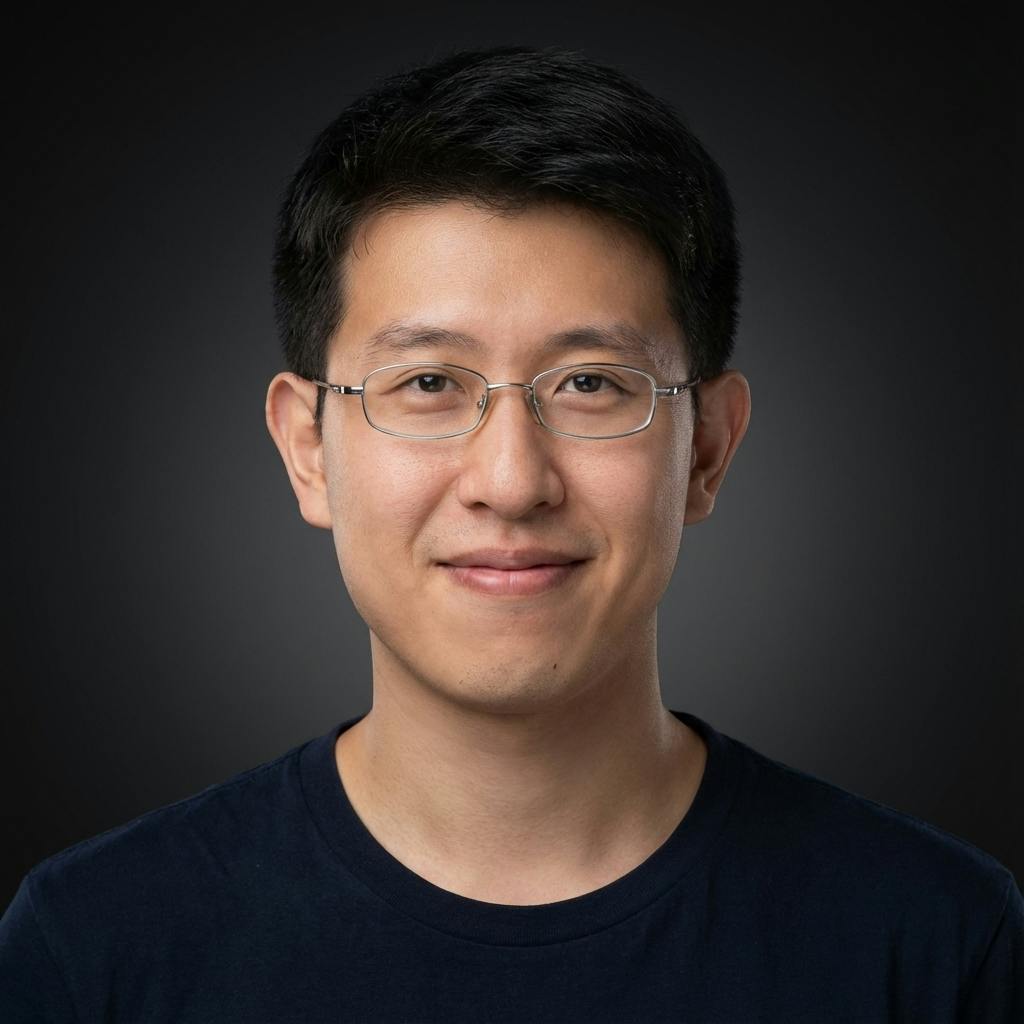


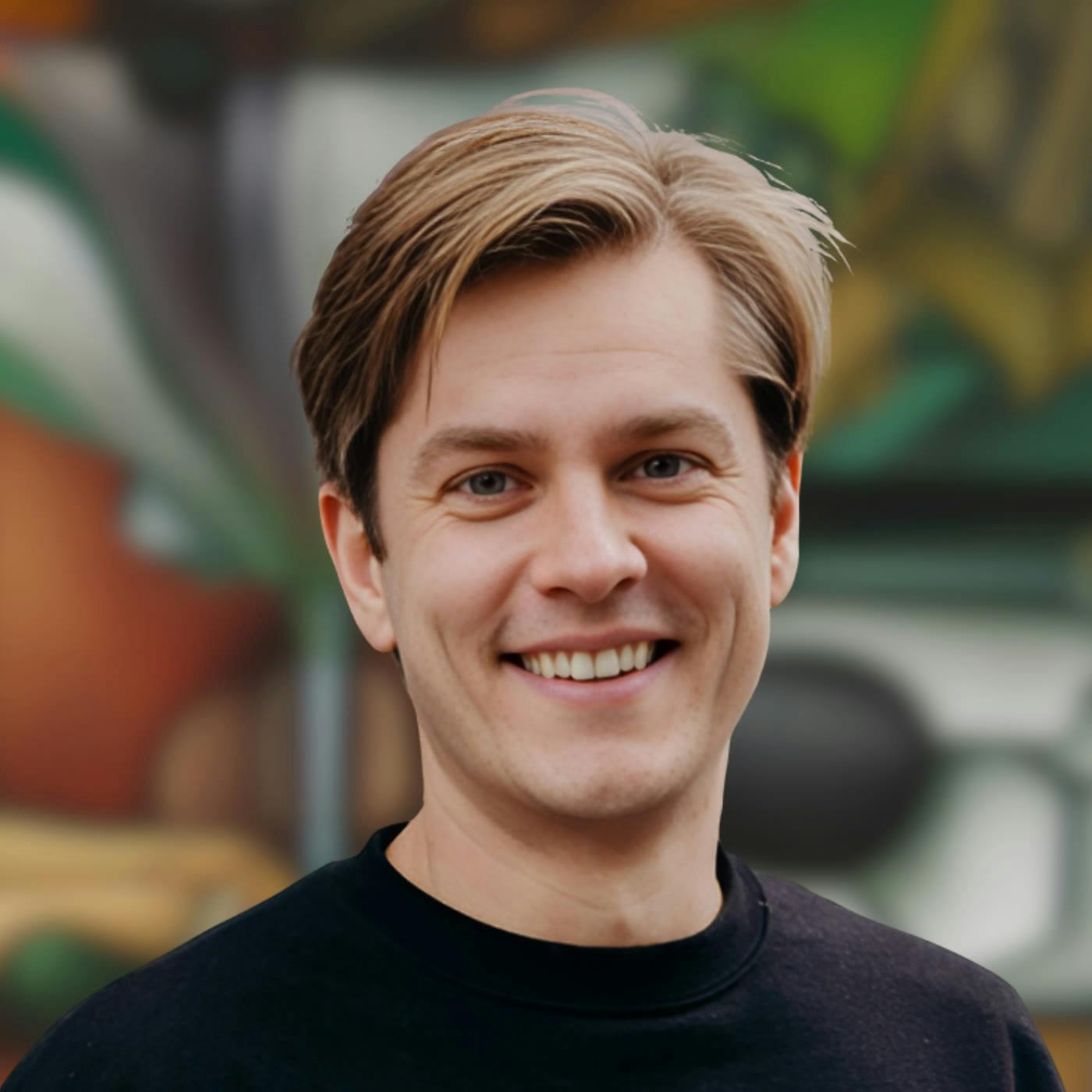
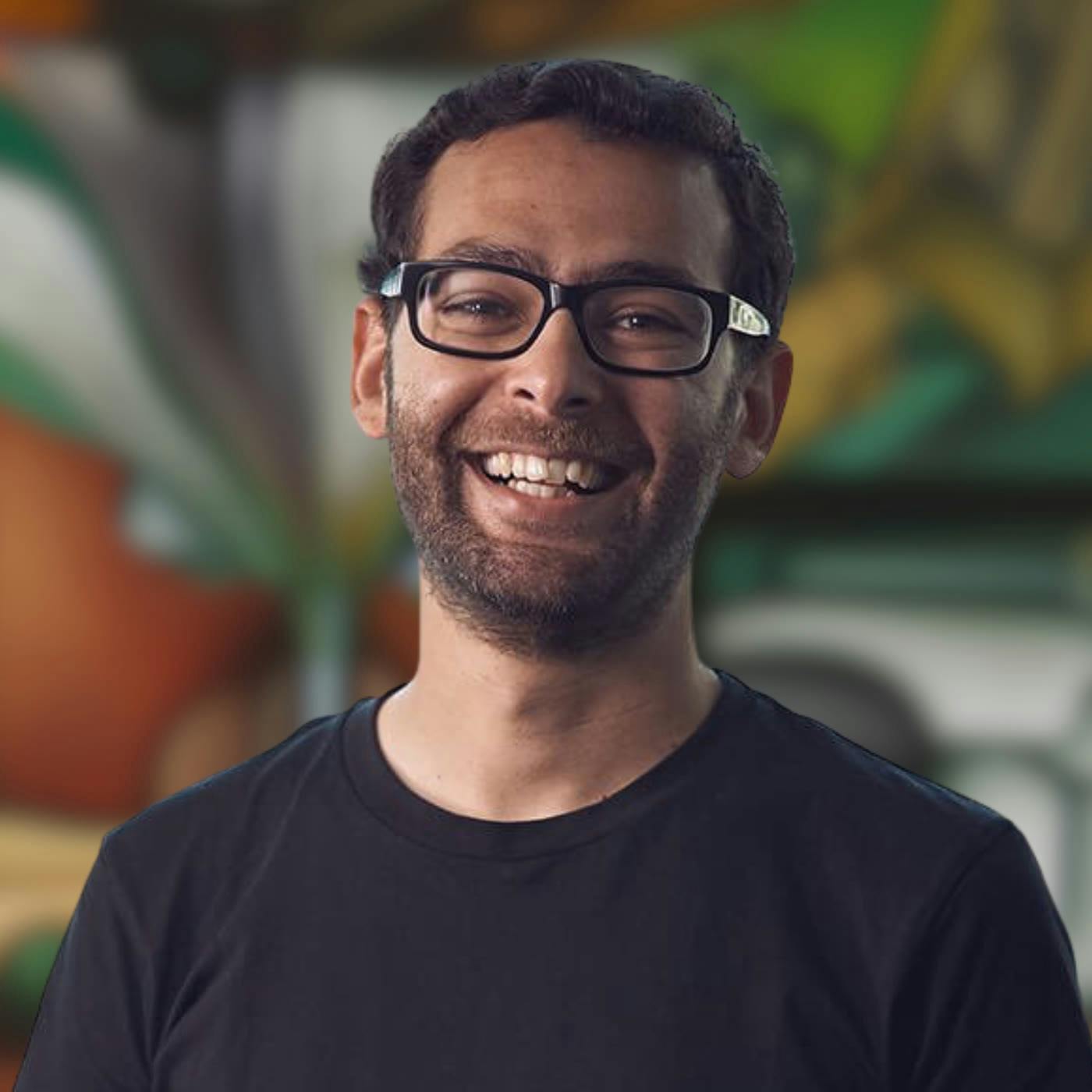

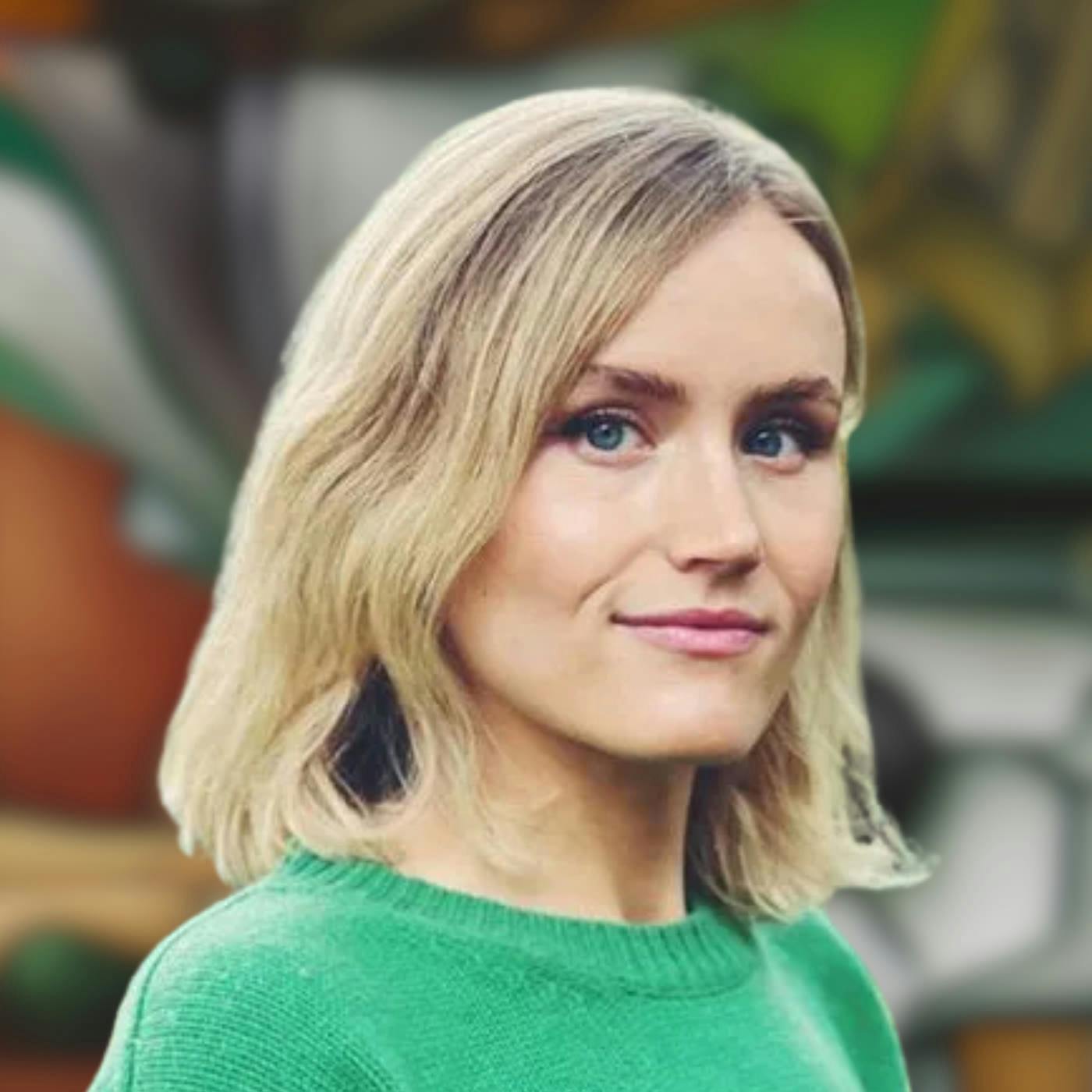


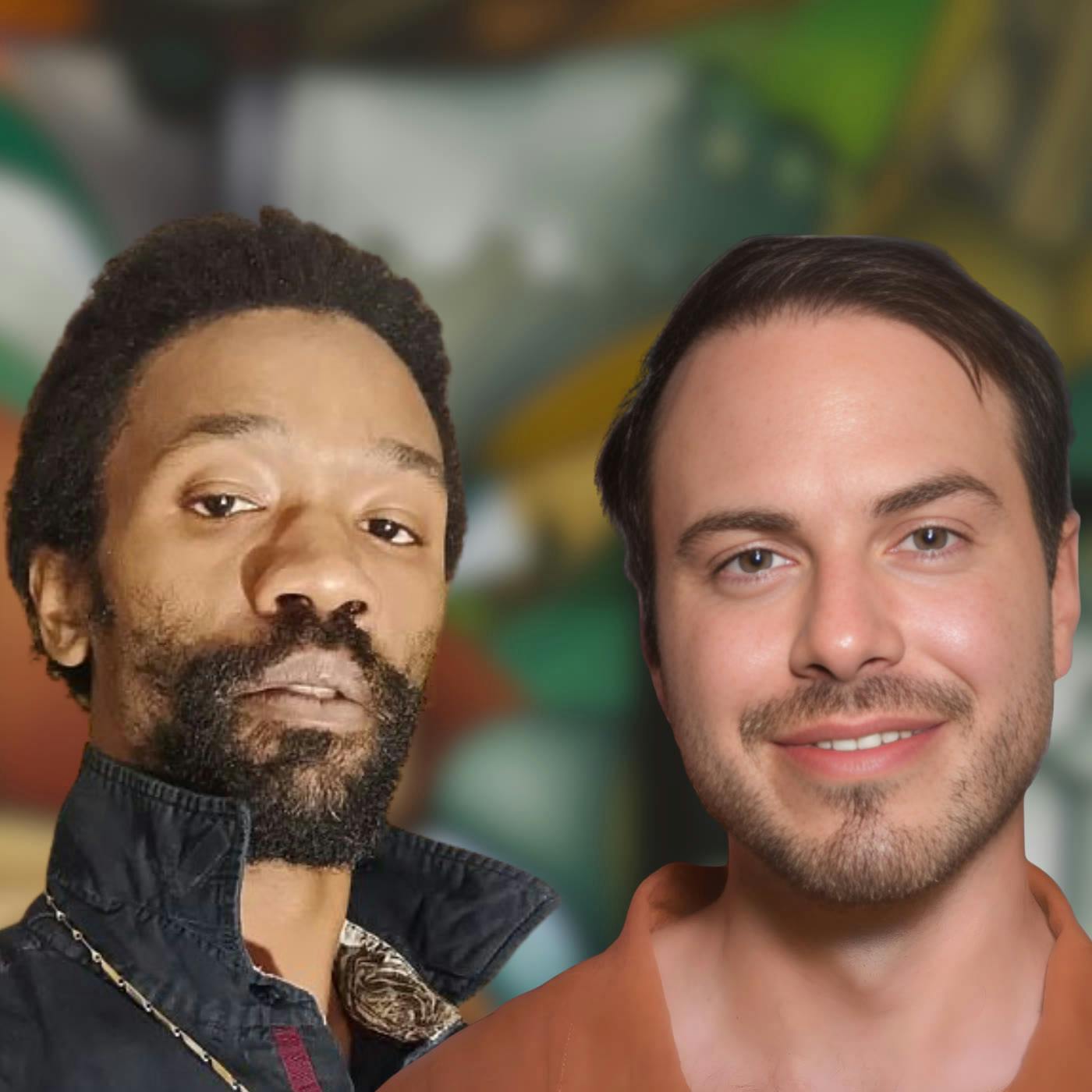
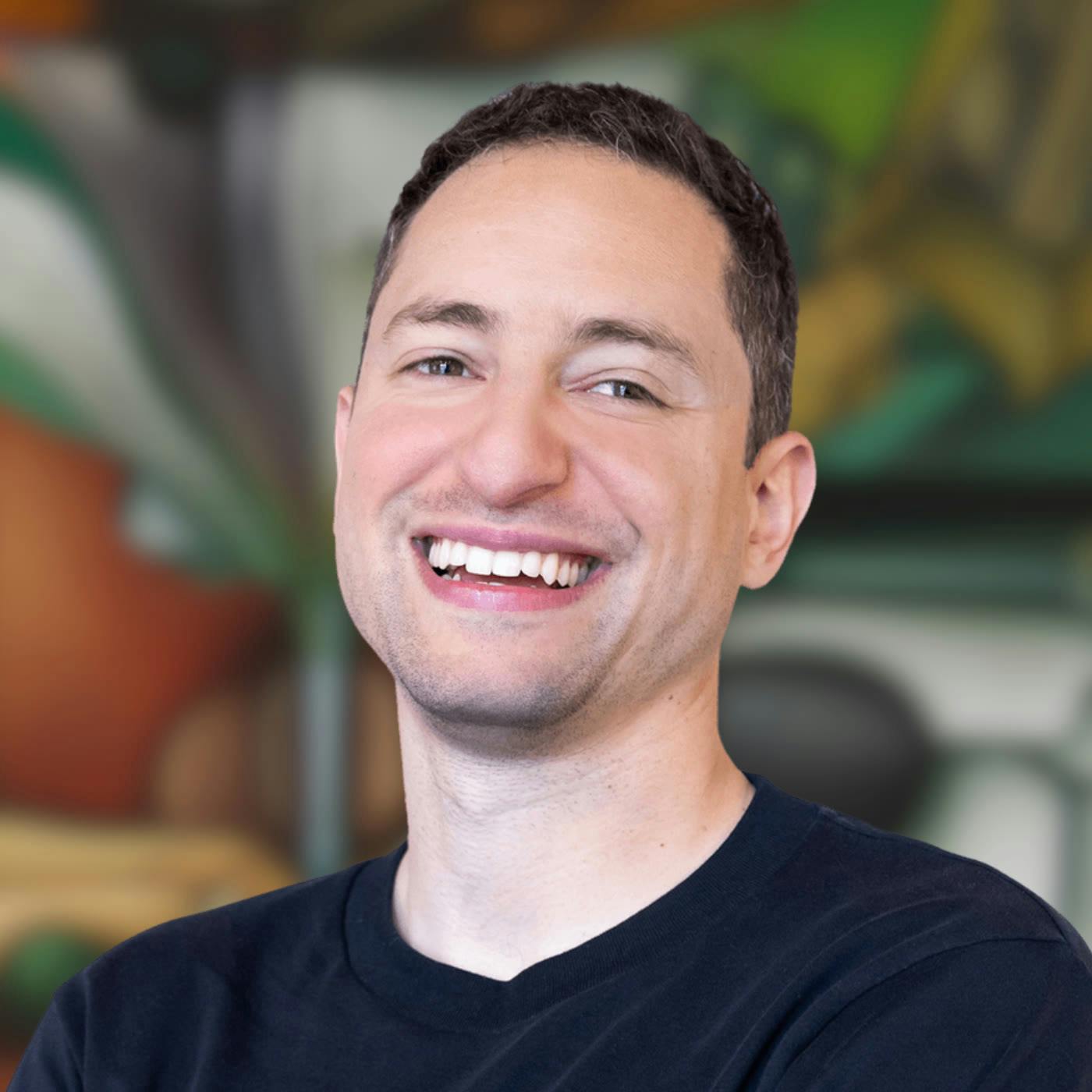

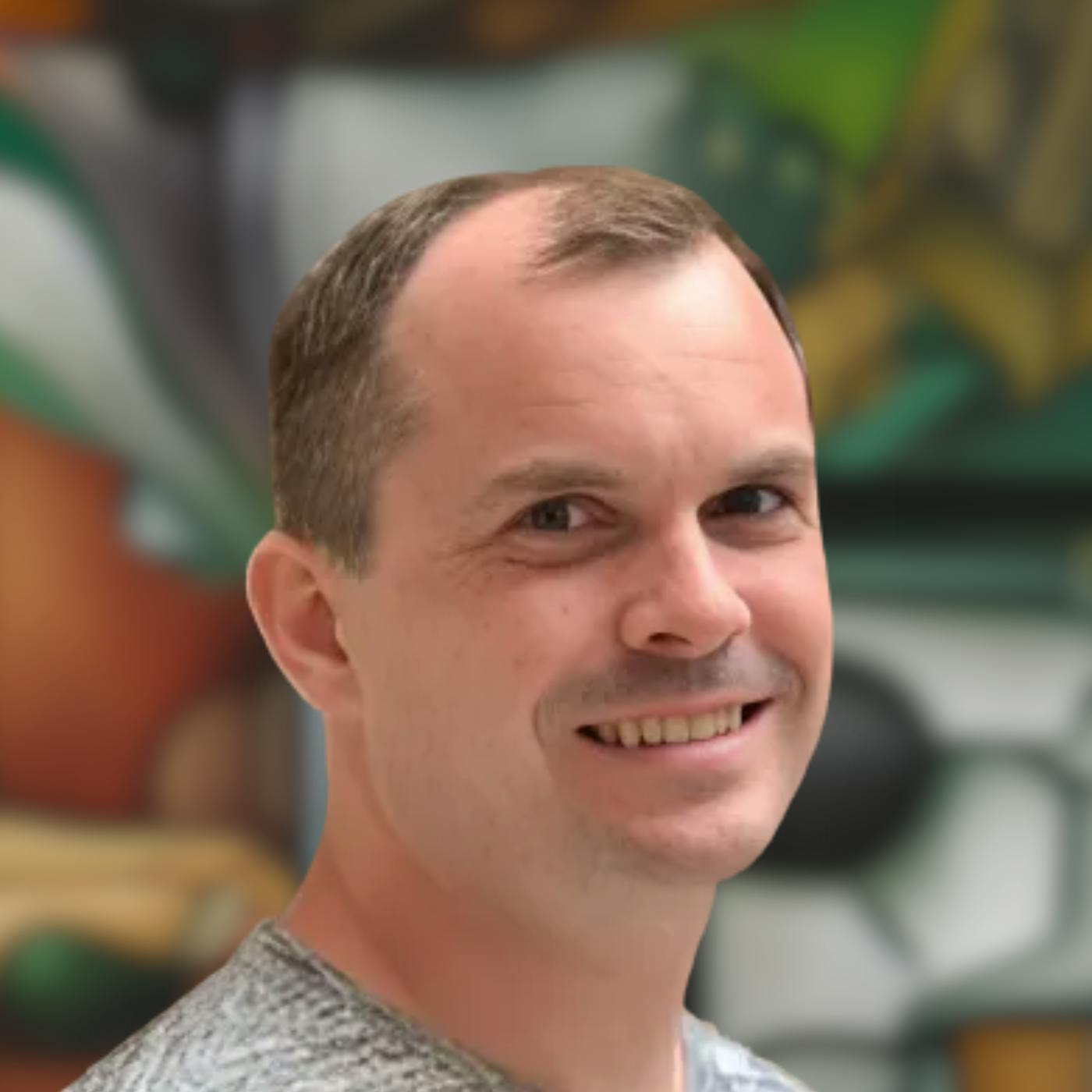






The host has verbal diarrhea. Shut up and let the guest talk.
🔴WATCH>>ᗪOᗯᑎᒪOᗩᗪ>>👉https://co.fastmovies.org